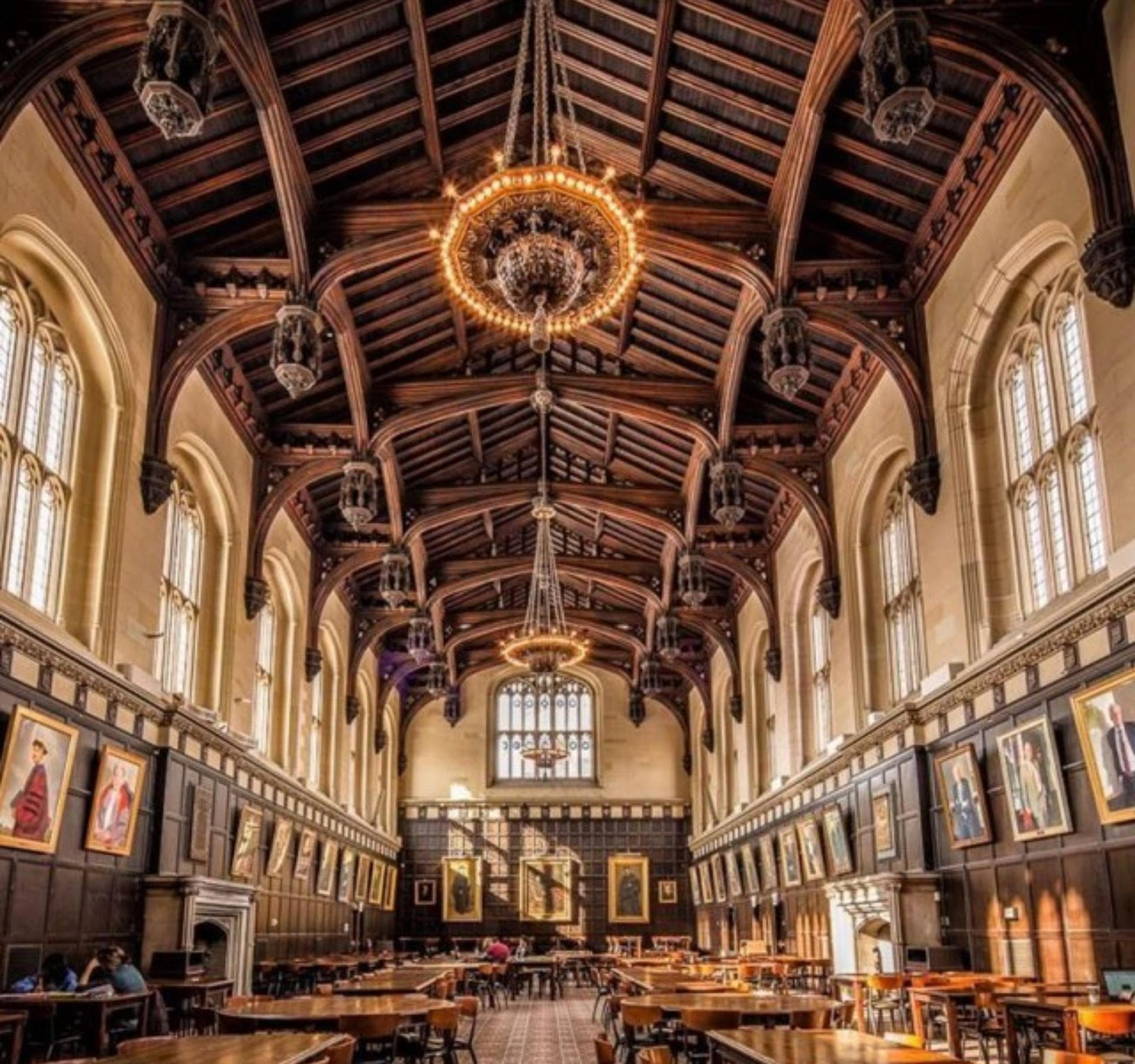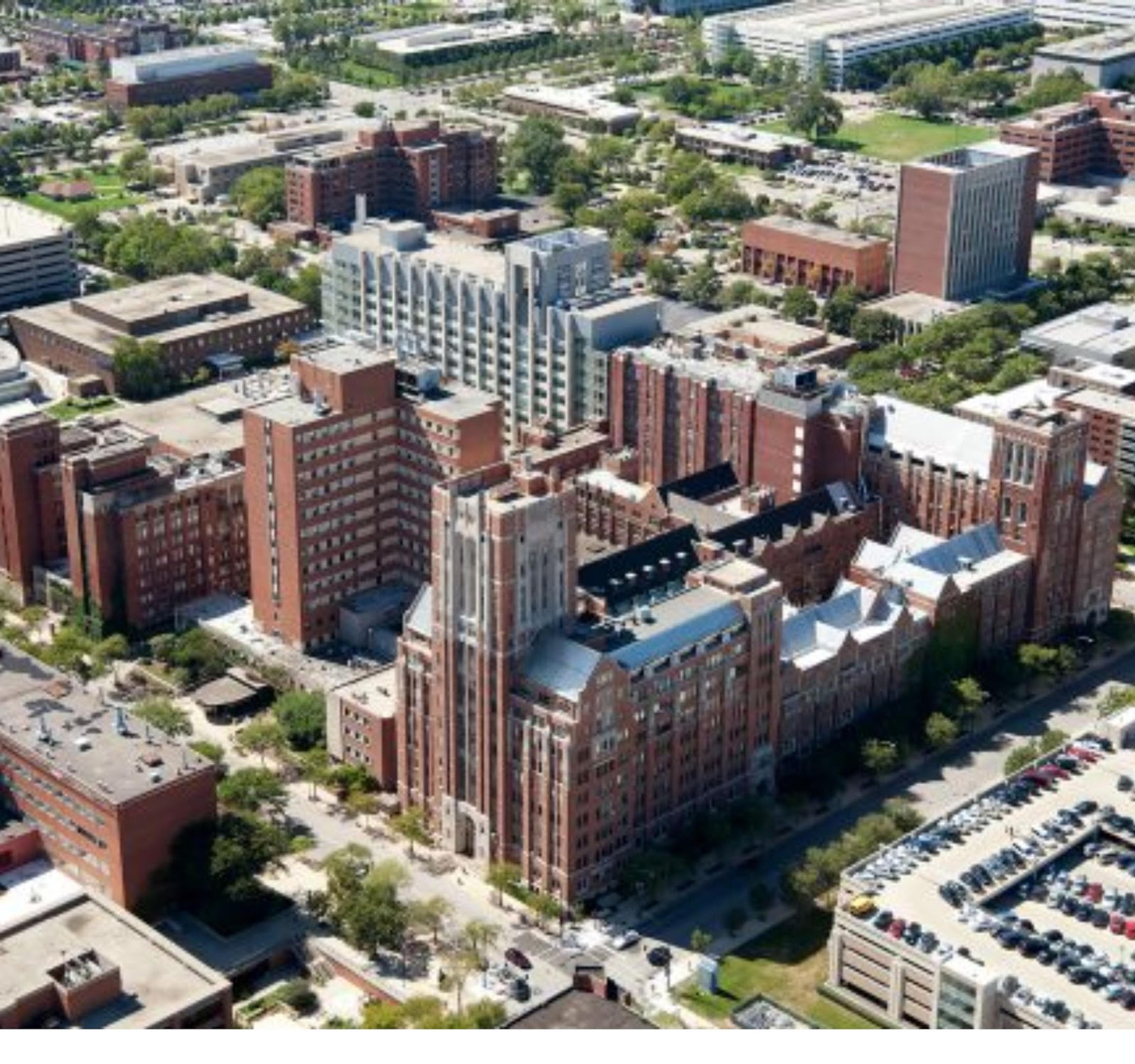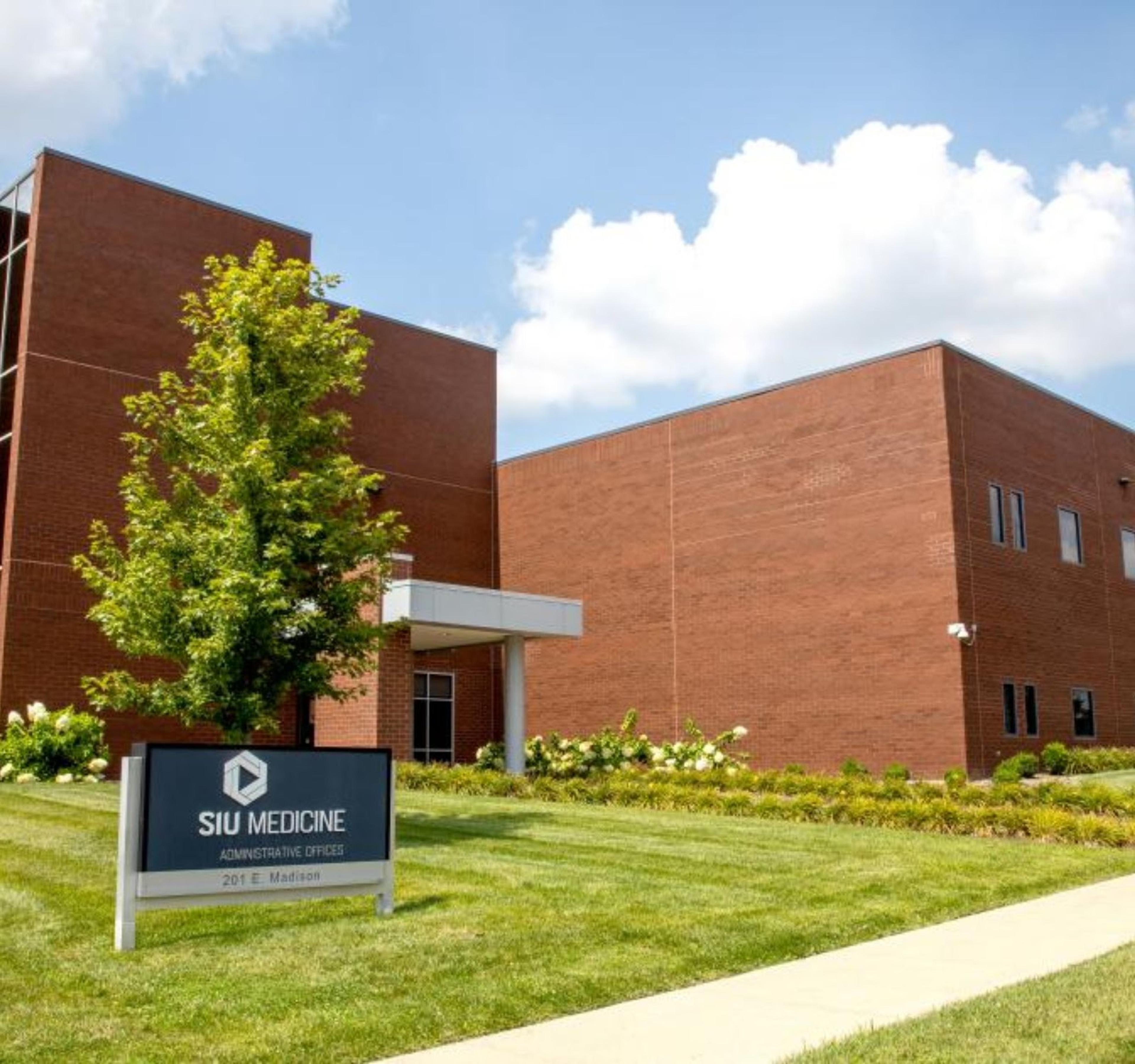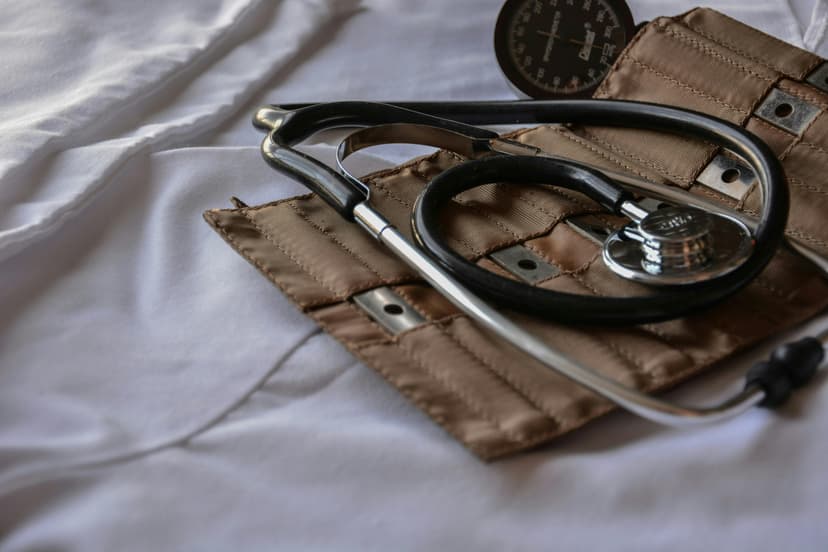The Top 5 Medical Schools in Illinois: Deadlines, GPA, MCAT, & More
Considering pursuing a career in medicine and looking for the best medical schools in Illinois? This comprehensive guide explores the top schools, deadlines, GPA and MCAT requirements, and everything else you need to know.
Posted July 28, 2025

Join a free event
Learn from top coaches and industry experts in live, interactive sessions you can join for free.
Table of Contents
For individuals pursuing a career in medicine and seeking the best medical schools in Illinois, this guide serves as a valuable resource. It provides an in-depth exploration of the state's top medical schools, including detailed information on admissions requirements, curricula, tuition costs, financial aid opportunities, residency programs, and other essential aspects of medical education.
Whether prospective students are focused on preparing a competitive application, understanding the academic offerings, or evaluating post-graduation pathways, this comprehensive guide aims to equip them with the knowledge needed to make informed decisions and succeed in their journey toward a medical career.
Why Choose Illinois for Medical School?
Illinois offers a wealth of opportunities for aspiring physicians. With some of the best medical schools in the country, Illinois is home to both MD and osteopathic medical schools that emphasize excellence in clinical training, research, and community engagement.
Additionally, Illinois's healthcare system is vast, providing hands-on experience with a diverse patient population. The state’s medical schools include campuses in urban areas like the Chicago campus and rural regions such as central and southern Illinois, ensuring a range of experiences for students.
Illinois also has a lower cost of living compared to other major metropolitan hubs, making it a practical choice for students pursuing a medical degree.
Top 5 Medical Schools in Illinois
Illinois is home to several prestigious medical schools that offer high-quality education and clinical training. Here are the top five:

1. University of Chicago – Pritzker School of Medicine
- Acceptance Rate: ~1.4%
- Location: Chicago, IL
- Median GPA: 3.93
- Median MCAT: 521
Located in the heart of Chicago, the Pritzker School of Medicine is consistently ranked among the top medical schools in the nation. Known for its rigorous curriculum and emphasis on research, Pritzker provides students with extensive clinical exposure at renowned healthcare institutions like the University of Chicago Medical Center. The school also excels in fostering leadership skills and innovation in medicine, making it a top choice for aspiring physicians.

2. Northwestern University – Feinberg School of Medicine
- Acceptance Rate: ~2%
- Location: Chicago, IL
- Median GPA: 3.92
- Median MCAT: 520
The Feinberg School of Medicine in downtown Chicago offers a state-of-the-art educational experience. With its integration of cutting-edge technology, robust research opportunities, and affiliations with leading hospitals such as Northwestern Memorial Hospital, Feinberg equips students to excel in their medical careers. The school is also known for its commitment to community engagement and global health initiatives.

3. University of Illinois College of Medicine (UIC)
- Acceptance Rate: ~7.5%
- Location: Chicago, Peoria, Rockford
- Average GPA: 3.74
- Average MCAT: 511
As one of the largest medical schools in the United States, the University of Illinois College of Medicine has campuses in Chicago, Peoria, Rockford, and Urbana. This diversity allows students to experience a range of urban and rural healthcare settings. The school is particularly appealing to Illinois residents, offering in-state tuition and extensive opportunities for research, primary care, and specialty training.

4. Rush Medical College
- Acceptance Rate: ~1.2%
- Location: Chicago, IL
- Median GPA: 3.76
- Median MCAT: 509
Located in Chicago's Medical District, Rush Medical College is known for its strong emphasis on clinical training and patient-centered care. The school partners with Rush University Medical Center, a top-ranked hospital, providing medical students with unparalleled opportunities for hands-on learning. Its innovative curriculum and focus on leadership in healthcare make it a standout institution.

5. Southern Illinois University School of Medicine (SIU)
- Acceptance Rate: ~6.5%
- Location: Springfield, IL
- Average GPA: 3.77
- Average MCAT: 507
Based in Springfield, SIU School of Medicine focuses on addressing healthcare needs in central and southern Illinois. The school is renowned for its innovative problem-based learning curriculum and dedication to rural healthcare. With smaller class sizes and an emphasis on primary care, SIU provides a supportive environment for medical students interested in making a difference in underserved communities.
These institutions include MD programs and osteopathic medicine options, catering to a variety of student preferences. Some schools, such as the Carle Illinois College of Medicine (known for its engineering-based curriculum) and the Midwestern University Chicago College of Osteopathic Medicine (specializing in holistic care), stand out for their unique approaches to medical education and innovation.
Admissions Deadlines and Requirements
Applying to medical school is a multi-step process, and understanding key deadlines is essential for staying on track. Most medical schools in Illinois use the AMCAS (American Medical College Application Service) or AACOMAS (American Association of Colleges of Osteopathic Medicine Application Service) to streamline the application process. Here’s what you need to know:
Application Deadlines
| Application Stage | Details |
|---|---|
| AMCAS Opens | May 1, 2025 (projected) – You can start filling out your application in early May. |
| Earliest Submission Date | May 30, 2025 – Submitting on the first day helps maximize your interview chances. |
| Primary Application Deadline | Ranges from October to December 2025, depending on the school. Example: UChicago Pritzker’s deadline is typically November 15. Check each school's admissions site. |
| Secondary Applications | Sent out within 2–3 weeks of primary submission. Most schools expect turnaround within 2 weeks. Pre-writing your secondaries can give you an edge. |
| Interview Season | August 2025 to March 2026 – Invitations are rolling. Some schools interview as early as late summer. |
| “Plan to Enroll” Opens (AMCAS Tool) | February 2026 – You can indicate where you're planning to enroll. |
| “Commit to Enroll” Deadline | Late April to early July 2026, depending on the school. You must formally commit and withdraw from other schools by this point. |
Watch: How to Nail Your Medical School Interview
GPA and MCAT Requirements
To attend medical schools in Illinois, students must know that they are highly competitive, and academic excellence is essential. Here’s a breakdown of the expectations.
GPA Requirements
Competitive applicants typically have cumulative GPAs of 3.7 or higher. Strong performance in science coursework is especially important.
Examples:
- University of Chicago – Pritzker School of Medicine: Median GPA ~3.9.
- Southern Illinois University School of Medicine: Minimum GPA ~3.5, but a higher GPA is recommended for competitive applicants.
Expert Tip: Strengthen your GPA by excelling in upper-level biology, chemistry, and physics courses to demonstrate academic rigor.
MCAT Requirements
Aim for scores in the 90th percentile or higher (typically 510–520).
Examples:
- Northwestern Feinberg School of Medicine: Median MCAT ~520.
- Chicago Medical School at Rosalind Franklin University: Median MCAT ~512.
Expert Tip: Develop a study schedule that covers all four MCAT sections (Chemical/Physical Foundations, CARS, Biological/Biochemical Foundations, and Psychological/Social Foundations). Take multiple full-length practice tests to simulate test-day conditions.
Additional Requirements
In addition to strong academic metrics, Illinois medical schools evaluate applicants holistically. Here’s how to strengthen your application in other areas:
- Community service - Admissions committees value applicants who have a history of volunteerism and service to underserved communities. Volunteer at free clinics, mentor underprivileged students or participate in health-related outreach programs. Highlight these experiences in your personal statement and interviews.
- Clinical experience - Hands-on exposure to healthcare environments, such as shadowing physicians, working as a medical scribe, or volunteering in hospitals. Aim for at least 100–200 hours of clinical experience to demonstrate your commitment to patient care.
- Letters of recommendation - Schools typically require 3–5 letters from faculty, employers, or healthcare professionals. Choose recommenders who know you well and can speak to your academic abilities, character, and commitment to medicine. Provide them with your resume and personal statement for context.
- Research experience - Especially valued at research-focused schools like the Carle Illinois College of Medicine and Chicago Pritzker School, research experience demonstrates analytical thinking and a commitment to advancing medical knowledge. Highlight your contributions to research projects in your application and, if possible, include any publications or presentations you’ve contributed to.
Tuition and Financial Aid
Medical school tuition in Illinois varies significantly based on the school and residency status. Medical school tuition in Illinois varies significantly depending on the institution and residency status. Here's an overview of the tuition costs for some prominent medical schools in the state:
| Medical School | Tuition (Annual) |
|---|---|
| University of Chicago – Pritzker School of Medicine | $65,316 |
| Northwestern University Feinberg School of Medicine | $75,266 |
| Southern Illinois University School of Medicine | $47,522 (in-state) / $95,044 (out-of-state) |
| Chicago Medical School at Rosalind Franklin University | $70,317 |
| Carle Illinois College of Medicine | $54,996 (same for in-state and out-of-state) |
Note: These figures include tuition and mandatory fees but do not account for housing, books, health insurance, or personal expenses, typically another $20,000–$25,000 per year.
To assist with these expenses, Illinois medical schools offer various financial aid options, including merit-based scholarships, need-based grants, and federal student loans. For instance, the Carle Illinois College of Medicine automatically considers all admitted students for merit scholarships and provides guidance on federal financial aid through the Free Application for Federal Student Aid (FAFSA).
Similarly, the University of Illinois College of Medicine offers personalized financial advising and outreach to help students navigate the financial aid process. Given the substantial investment required for medical education, it's crucial for prospective students to explore all available financial aid opportunities and plan accordingly.
Contacting the financial aid offices of individual schools can provide tailored information and assistance to help manage the costs associated with medical school.
MD and Osteopathic Programs in Illinois
Illinois offers both traditional MD programs and osteopathic medical schools, catering to different student interests and career paths. The Midwestern University Chicago College of Osteopathic Medicine is a top choice for students pursuing osteopathic medicine, emphasizing holistic patient care.
Additionally, schools like the Chicago Medical School and Carle Illinois College of Medicine integrate cutting-edge technology and innovation into their curricula.
Research and Residency Opportunities
Illinois is home to some of the best residency programs in the country. Schools like the University of Illinois College of Medicine and Rush Medical College offer programs in specialties such as surgery, internal medicine, and pediatrics. Additionally, students at institutions like Southern Illinois University School of Medicine gain experience in rural healthcare, addressing critical physician shortages in central and southern Illinois.
Research is also a cornerstone of Illinois medical education. Schools like the Chicago Pritzker School and Carle Illinois College of Medicine provide opportunities to work on groundbreaking studies, preparing students for both clinical practice and academic medicine.
Tips for Applying to Illinois Medical Schools
1. Start early and stay organized
It’s important to begin preparing your AMCAS or AACOMAS application well in advance, as these portals typically open in May. Submitting early increases your chances due to rolling admissions. Create a timeline for key milestones, including MCAT preparation, gathering letters of recommendation, writing personal statements, and completing secondary applications. Using a checklist to track deadlines and required materials for each school can help you stay organized and on schedule.
2. Thoroughly research each medical school
When researching programs, go beyond rankings to understand each school’s mission, curriculum, and special programs. For example, the Chicago Medical School at Rosalind Franklin University emphasizes interprofessional education and teamwork, while the Southern Illinois University School of Medicine is known for training physicians to serve rural and underserved communities. Meanwhile, Carle Illinois College of Medicine focuses on integrating engineering and technology into medical education. Tailor your application to align with each school’s values, highlighting experiences that resonate with their mission and strengths.
3. emphasize community service and clinical experience
Admissions committees value applicants who demonstrate a commitment to community service and clinical exposure. Volunteering at free clinics, hospitals, or community health organizations is an excellent way to gain experience while making an impact. Shadowing physicians also helps you better understand the medical profession and provides insights you can include in your application essays. Highlight experiences where you worked directly with patients or addressed healthcare disparities to show your dedication to the field.
4. Excel in academics and the MCAT
Strong academic performance is critical for medical school applications. Aim for a GPA of 3.7 or higher and an MCAT score in the 90th percentile or above to remain competitive. Excelling in challenging coursework, particularly in the sciences, is essential, and upward trends in your academic record should be highlighted. Take the MCAT early enough to allow for retakes if necessary, and dedicate sufficient time to prepare through a combination of coursework, practice exams, and review materials.
5. Craft a compelling personal statement
Your personal statement is your opportunity to tell a story that showcases your motivation for medicine and unique qualities. Reflect on meaningful moments in your journey, such as volunteer work, research projects, or personal challenges, and explain how they shaped your commitment to medicine. By sharing specific experiences and insights, you can create a narrative that makes your medical school application stand out.
6. Secure strong letters of recommendation
Letters of recommendation should come from professors, mentors, or supervisors who know you well and can attest to your strengths in academics, leadership, and patient care. To help them craft detailed and personalized letters, provide them with your resume, personal statement, and any relevant information about your experiences and goals. This ensures they can write a comprehensive and supportive letter.
7. Prepare for interviews
Interviews are a critical part of the admissions process, so thorough preparation is key. Be ready to answer common questions, such as why you want to become a doctor, why you are interested in a specific school, and how you have demonstrated resilience or problem-solving skills. Practice responding to these questions clearly and concisely. Additionally, prepare for different interview formats, including traditional one-on-one interviews and Multiple Mini Interviews (MMIs). Focus on showcasing your communication skills, interpersonal abilities, and passion for medicine.
8. Highlight research and leadership experience
Research experience, such as working on projects, publications, or presentations, can enhance your application significantly. Schools like the University of Chicago Pritzker School of Medicine and UIC College of Medicine particularly value applicants with research backgrounds. Leadership roles in student organizations, community initiatives, or professional settings also demonstrate initiative and the ability to work collaboratively—qualities that admissions committees look for in future physicians.
9. Understand the admissions criteria of osteopathic schools
If applying to osteopathic medical schools, such as Midwestern University Chicago College of Osteopathic Medicine, emphasize your understanding of the holistic and patient-centered approach of osteopathic medicine. Highlight experiences that align with these principles, such as working in integrative healthcare settings or promoting wellness in underserved communities.
10. Demonstrate cultural competence and adaptability
Given Illinois’s diverse population, medical schools highly value cultural competence and adaptability. Share examples from your background or experiences where you worked with diverse communities or addressed health disparities. This can demonstrate your readiness to thrive in a variety of healthcare settings and your ability to connect with patients from all walks of life.
11. Follow up after interviews
After completing interviews, sending thank-you notes to interviewers is a professional way to express gratitude and reaffirm your interest in the school. These notes can leave a positive impression and demonstrate your commitment to attending their program.
Conclusion
Illinois offers a wealth of opportunities for aspiring physicians, from world-class institutions like the Chicago Pritzker School to innovative programs at the Carle Illinois College of Medicine. With competitive GPA and MCAT requirements, a variety of MD programs, and a focus on community service, Illinois medical schools are an excellent choice for students pursuing a career in medicine.
Working with top medical school coaches provides applicants with expert guidance to strengthen their applications, excel in interviews, and secure admission to their desired medical schools.
See: The 10 Highest-Rated Med School Coaches
Read these next:
- Average MCAT Scores of the Top 50 Medical Schools
- The Ultimate Guide to the Medical School Application
- AACOMAS Application Timeline: Key Dates and Tips
- Nursing School Cost – How Much is Nursing School?
- How to Become a Physician Assistant
FAQs
What is University of Illinois Medical School Ranked?
- UI College of Medicine is ranked #25 by the NIH ranking based on the amount of funding. UI College of Medicine is currently ranked #55 among research-based medical schools in the 2021 edition of U.S. News & World Report. GPA, MCAT, & More
Southern Illinois University School of Medicine
- Southern Illinois University School of Medicine is the cheapest medical school in Illinois with an annual tuition of $62,199.00.
What is the minimum GPA for the University of Illinois College of Medicine?
- The best eligible score will be used for the admission process. They do not have a minimum GPA requirement.
What is the lowest MCAT score accepted into medical school?
- The lowest MCAT score accepted by most medical schools in the U.S. and Canada is typically in the range of 490-495. Scores below 490 are rarely if ever, accepted. It's important to note that while 490-495 is the minimum score accepted, the vast majority of applicants score well above this range.
How long is medical school in Illinois?
- Each of the campuses provide all four years of the medical school curriculum. Curricular content and student assessments are identical across campuses, and coordinated at a college-wide level to ensure comparability of students' learning experience.
Browse hundreds of expert coaches
Leland coaches have helped thousands of people achieve their goals. A dedicated mentor can make all the difference.


















